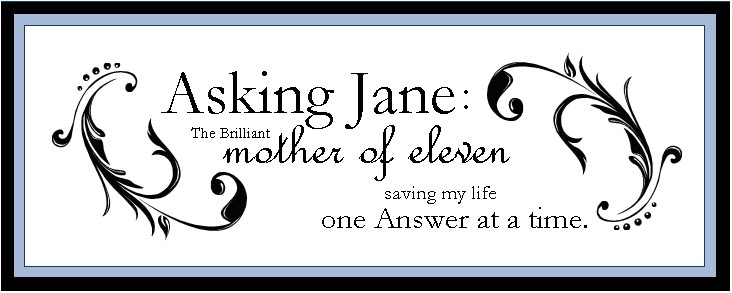The Question:
My question for you is hard for me to put succinctly, but it's something that I'd really like to see discussed a little bit.
As my kids have been getting older, we've been able to start teaching them some more interesting things in Family Home Evening. Recently we've talked about church history, and the Plan of Salvation, for example. Discussing these kinds of topics naturally brings us to discussions of how our church is different from other churches, and how members of our church have been persecuted because of their beliefs. As these things come up, I can see my kids processing these ideas in their sweet little minds, and something about the looks on their faces just breaks my heart. Suddenly it dawned on me that I am teaching them that they will be persecuted. And I just feel so strangely conflicted about that.
Am I setting them up with a persecution complex? Should I let them discover persecution by their own experience? Am I teaching them to be ashamed of themselves and their faith by teaching them that they are different? I just want my kids to be strong and confident as well as faithful and obedient, and something about the looks on their faces has me questioning what lessons were being communicated. It felt like I was exposing them to an evil that they shouldn't have to face yet. What do you think?
Love,
Tara
The Answer:
Dear Tara,
That's really an interesting question--and one I'd never really thought about. As mothers, it's our natural instinct to protect our children. But when you think about it, we start preparing them for the injustices of life very early. We tell them stories of Cinderella, Snow White and The Ugly Duckling. And, of course, the scriptures are filled with stories of the faithful who stood up to persecution.
Without really thinking about it, I guess I've always taught my children that they might be persecuted for their beliefs and standards but they'll be in good company. Over the years, each of my children have had a handful of experiences with it---almost always in the context of living their standards. For example, most of them have had to tell a group of friends that they wouldn't watch a certain movie or participate in certain activities. Around sixth grade when lots of kids are pairing off and "going out", mine have had to explain that they won't do this. I really love it when they have these experiences, when they start to feel that pressure. I'm especially proud when they have the courage to say, "This is something I won't do"" rather than "My parents won't allow it."
They feel good when they make these stands and they discover for themselves that pleasing God is better than pleasing their friends. They distinguish themselves as true followers.
When it comes to outright persecution about their religion, for us it's been rare. When our son Brian was in first grade, he came home from school one day and announced that his best friend Cody "is never allowed to play with me again because I'm a Mormon." It turned out that Cody's dad was a minister and very antagonistic toward our church. True to his word, Cody never did play with Brian. It was a pretty harsh experience but Brian didn't develop a persecution complex. I think he just learned early about misunderstanding and prejudice.
I think the discussions you've had with your children are good. Teach them that, yes, they might encounter persecution in their life but that's alright. You hope they'll be strong and valiant when it comes. These kinds of resolves build confidence. And the first time they have to really stand up for their beliefs, they'll learn something great about themselves--something they couldn't find out without that opposition.
All my love,
Jane




